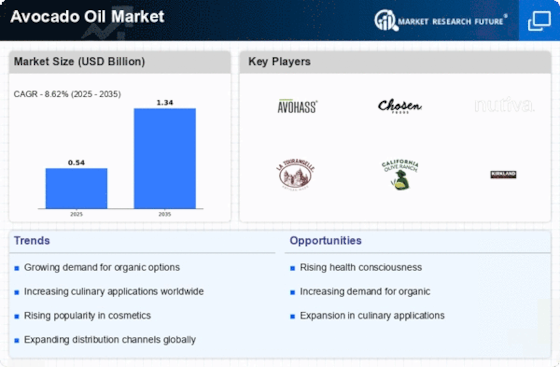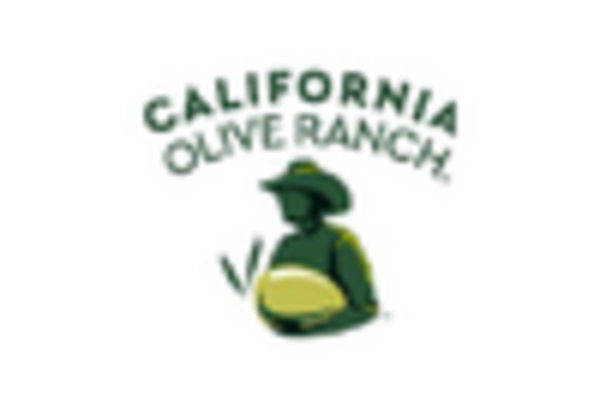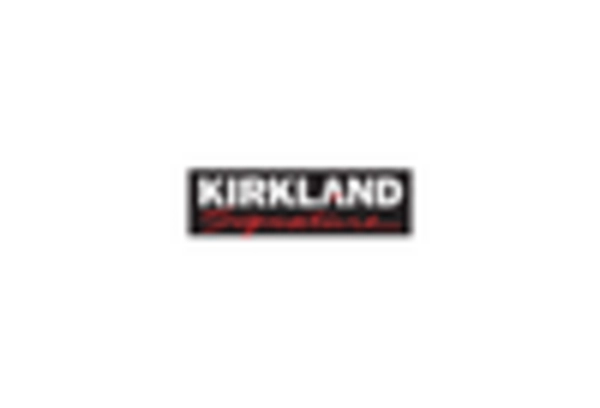Market Share
Avocado Oil Market Share Analysis
In the expansive realm of culinary oils, the Avocado Oil Market stands out as a dynamic and competitive segment, where market share positioning strategies play a pivotal role in determining the success of brands. Several strategic approaches are commonly employed by companies operating in this market to establish a strong foothold and capture the attention of consumers. One prominent strategy revolves around product quality and differentiation. Avocado oil, known for its health benefits and versatility, is often differentiated based on factors such as the extraction process, purity, and source of avocados. Brands may highlight cold-pressed methods to retain nutritional value or emphasize the use of avocados sourced from specific regions known for superior quality. By offering a unique selling proposition, companies aim to stand out in a crowded market, attracting consumers who prioritize premium and high-quality products. Pricing strategies play a significant role in market share positioning within the Avocado Oil Market. Some brands position themselves as accessible to the mass market by offering affordable options without compromising on quality. On the other hand, premium brands may command higher prices, targeting consumers willing to pay a premium for perceived superior quality and authenticity. Striking the right balance between price and perceived value is crucial, as it allows companies to appeal to different segments of the consumer base. Brand reputation and storytelling are integral components of market share positioning in the Avocado Oil Market. Consumers often gravitate towards brands with a positive image, transparency in sourcing, and ethical business practices. Brands that communicate their commitment to sustainability, fair trade practices, and social responsibility can build a loyal customer base. Sharing the story of how avocados are sourced, processed, and brought to market can create a connection with consumers who value authenticity and ethical considerations in their purchasing decisions. Distribution channels also play a crucial role in market share positioning. Companies strategically choose where and how their avocado oil products are made available to consumers. Some focus on widespread availability through traditional retail channels, ensuring their products are accessible in supermarkets and grocery stores. Others may opt for exclusive partnerships with specialty stores or online platforms, creating an aura of exclusivity and catering to a niche market. Direct-to-consumer models facilitated by e-commerce have gained prominence, allowing brands to engage with customers directly and provide a personalized shopping experience. Innovation and adaptation to consumer trends are key considerations in market share positioning within the Avocado Oil Market. As consumer preferences evolve, brands must stay attuned to the latest trends in health, wellness, and culinary preferences. Incorporating organic and natural variants, addressing concerns related to sustainability and environmental impact, and exploring novel uses for avocado oil are strategies employed to align with changing consumer demands and stay ahead in a competitive market.


















Leave a Comment